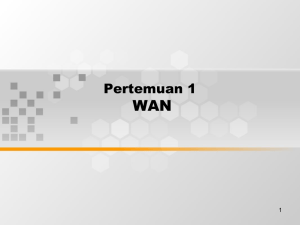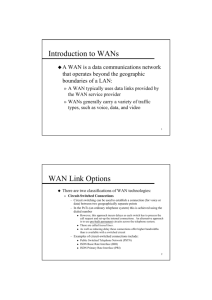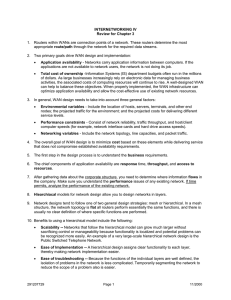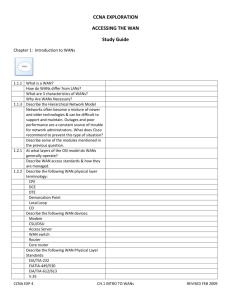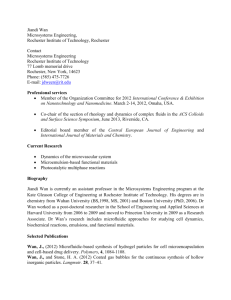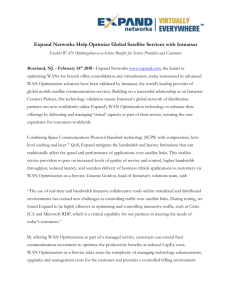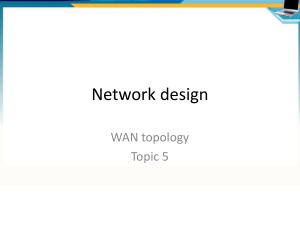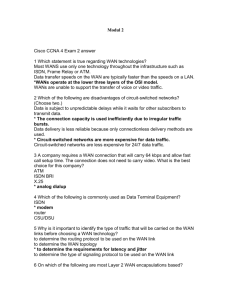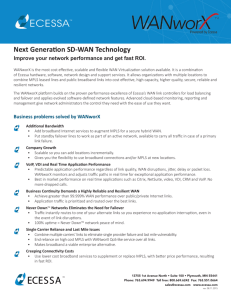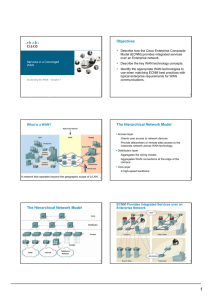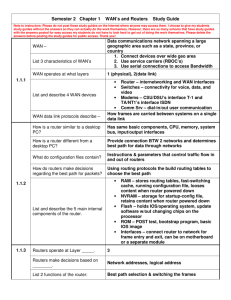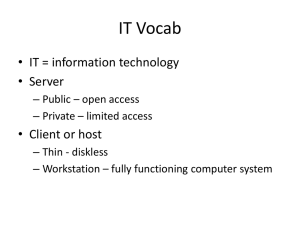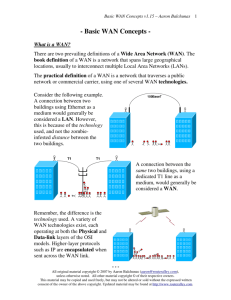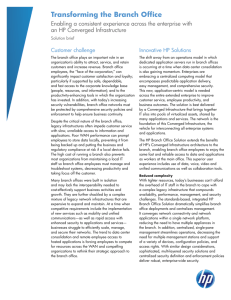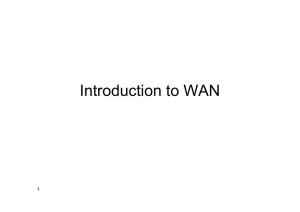WANS and ROUTERS
advertisement
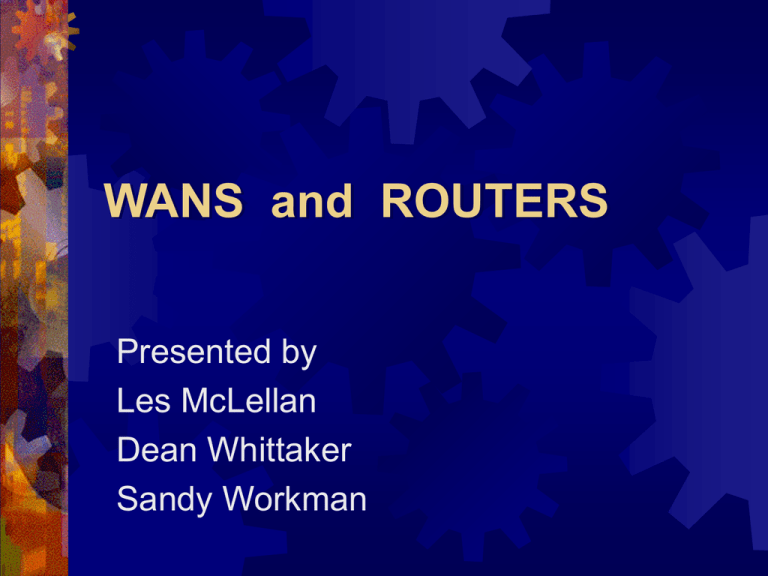
WANS and ROUTERS Presented by Les McLellan Dean Whittaker Sandy Workman WANS and ROUTERS What is a WAN? WAN Devices WAN Standards WAN Technologies What is a Router ? Summary What is a WAN? A Data Communications Network Network Services provided by PTO’s Relatively broad geographic area Serial connections of various types and speeds Provide full and part time connectivity Technologies function at the lower three layers of the OSI Model Wide Area Network Devices Routers WAN Bandwidth Switches Modems Comms Servers WAN Standards Defined and Managed by recognized authorities WAN’ s use the OSI reference Model WAN Physical Layer standards specify the interface WAN data Link protocols The WAN Physical Layer EIA/TIA 232 EIA/TIA 449 V 24 V 35 X 21 G 703 EIA-530 Serial Interface Adaptor Cables The WAN Data Link Layer High Level Data Link Control (HDLC) Frame Relay Point to Point Protocol (PPP) Serial Line Interface Protocol (SLIP) Cisco / IETF ISDN WAN Technologies Dedicated Lines Switched Connections (Circuit Switched) (Packet Switched) Other WAN Technologies Dedicated Lines T1 – 1.544 Mbps T3 – 44.736 Mbps E1 – 2.048 Mbps E3 – 34.368 Mbps Other Bandwidths are also available Switched Connections Circuit Switched POTS Packet Switched X 25 Frame Relay ATM SMDS ISDN Other WAN Services Dial Up Modems Cable Modems Wireless ROUTERS Internal Components The Function of a Router WANS and ROUTERS Summary Data Communication Networks that operate over a large area using Serial Links Routers are active intelligent nodes used to manage a network WANS and ROUTERS THE END
